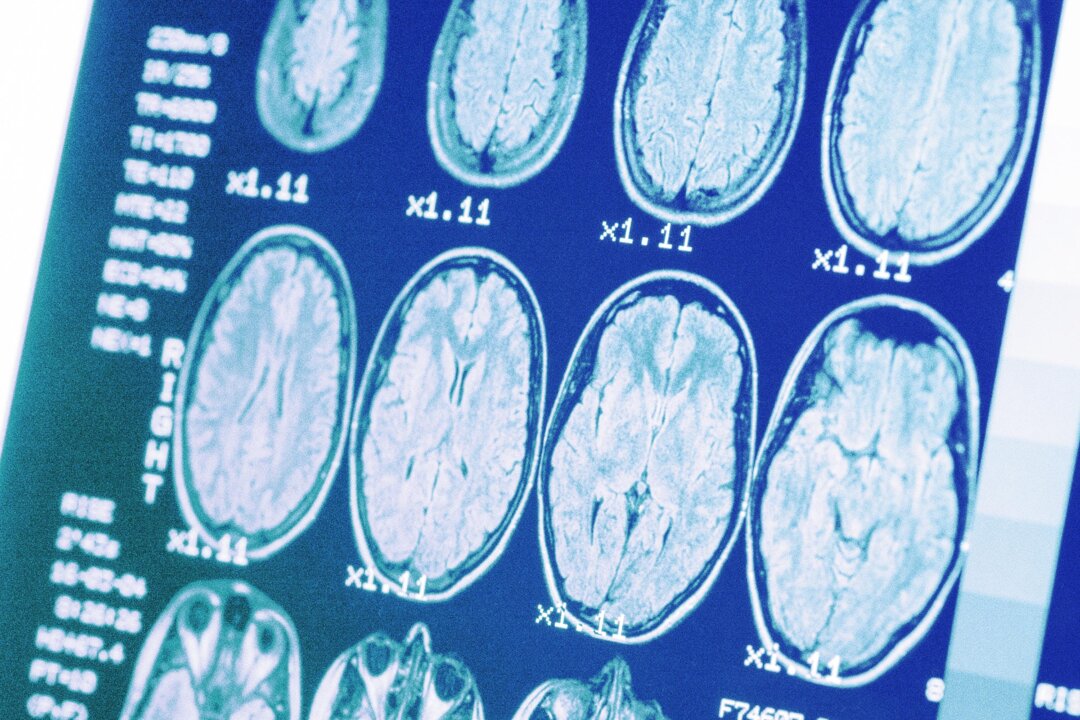Your brain needs a steady flow of blood to stay healthy, just as a garden needs water to grow. However, when blood pressure is too high, it can damage the blood vessels—much like an irrigation system under too much pressure can harm plants. Over time, this damage could increase the risk of Alzheimer’s disease.
The good news is that managing blood pressure with treatment and lifestyle changes can help protect your brain and memory.
How Blood Pressure Affects the Brain
Having high systolic blood pressure is associated with an 8 percent to 11 percent higher risk of Alzheimer’s disease.
Systolic blood pressure measures the force of blood when the heart beats, while diastolic pressure measures the pressure when the heart rests between beats. For instance, if a person’s blood pressure is 120/80, the first number is the systolic pressure and the second number is the diastolic pressure.
People with untreated high blood pressure face even higher odds of dementia. Compared with healthy people, their risk of developing Alzheimer’s disease was 36 percent higher. Compared with those receiving treatment for high blood pressure, their risk was 42 percent higher.
High blood pressure can lead to brain shrinkage and blood vessel damage, reducing blood flow and increasing the risk of brain changes associated with Alzheimer’s disease.
It also triggers changes in the brain, including the buildup of beta-amyloid due to impaired clearance of waste products from reduced blood flow. Beta-amyloid is a sticky protein that clumps together, disrupts communication between brain cells, and promotes the development of plaques and tangles—twisted strands of tau protein that interfere with how cells work.
Additionally, high blood pressure is also commonly linked to vascular dementia, which should be considered in any patient showing signs of dementia.
Small Changes, Big Effect
Even late in life, treating high blood pressure with medications has been shown to be effective.
It’s important to know whether treatment is working, which requires regular monitoring with a reliable device. If blood pressure remains high despite treatment, it may be time to revisit the approach. A health care provider can help assess whether the current medication is the right fit, whether the dose needs to be adjusted, or whether a different combination might work better.
Lifestyle choices can also have a powerful effect.
“Cognitive decline isn’t an inevitable consequence of growing older, but rather a process that may be prevented through early interventions,” Lilianne Mujica-Parodi, a brain-aging expert and chair of metabolic neuroscience at Stony Brook University, told The Epoch Times.
Three key lifestyle shifts can help, Melissa Mroz-Planells, a registered dietitian nutritionist, told The Epoch Times:
- Eating a diet low in sodium and rich in fruits, vegetables, and whole grains
- Engaging in regular physical activity
- Managing stress through practices such as mindfulness or deep breathing
“These changes work together to support heart health and improve blood pressure over time,” Mroz-Planells said.
One of the best-studied approaches is the DASH diet, short for Dietary Approaches to Stop Hypertension.
The diet emphasizes whole foods, plenty of fruits and vegetables, low-fat dairy, lean proteins, and limited sodium, sugary drinks, and processed foods.
In the DASH-Sodium trial, participants were divided into three groups: One followed a typical American diet, one followed the DASH diet with higher sodium, and one followed the DASH diet with lower sodium. While the DASH diet alone helped reduce blood pressure, combining it with sodium reduction led to even greater results.
Those who followed the DASH diet with low sodium saw their systolic blood pressure drop by 7.1 mmHg without hypertension and by 11.5 mmHg with hypertension.
Following the DASH diet has also been directly linked to better brain function and lowering the risk of Alzheimer’s disease.
The Role of Exercise and Stress
Physical activity is another powerful intervention.
Research shows that regular aerobic exercise for four to 12 weeks can lower systolic blood pressure by about 15 mmHg and diastolic blood pressure by up to 9 mmHg.
Stress also has a measurable effect on the body. During moments of acute stress, systolic blood pressure rises by an average of 1.54 mmHg, diastolic by 0.79 mmHg, and heart rate by 1.53 beats per minute.
Even without immediate stress, higher baseline stress levels are linked to elevated blood pressure and heart rate.
Long-term stress and depression can also directly affect the brain and raise the chances of developing mild cognitive problems or Alzheimer’s disease.
One simple and effective way to manage stress is through deep breathing. A review of diaphragmatic breathing research found that this technique helps lower blood pressure, reduces heart rate, promotes relaxation, and eases anxiety in adults with prehypertension or hypertension.
The most effective approach involved taking fewer than 10 breaths per minute—about six breaths—for 10 minutes, twice a day, over a period of four weeks.
“Even modest changes can make a big difference,” Mroz-Planells said.
“It’s about progress, not perfection, and the sooner you start, the more you can protect your brain and lower your risk of Alzheimer’s.”



